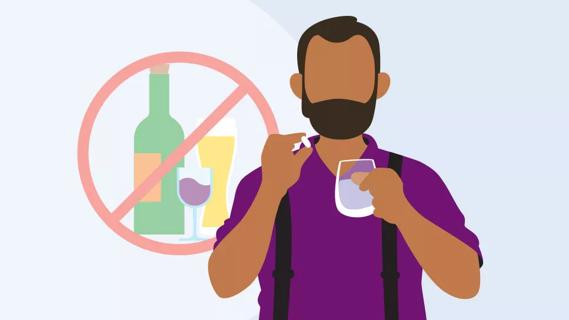Don’t assume you need them when you’re sick

Cold weather brings a rise in upper respiratory infections — sneezing, coughing and stuffy heads. These symptoms and others bring a common request for healthcare providers: Can I get antibiotics?
Advertisement
Cleveland Clinic is a non-profit academic medical center. Advertising on our site helps support our mission. We do not endorse non-Cleveland Clinic products or services. Policy
The answer is not always yes, says family medicine physician Daniel Allan, MD.
Being sick is unpleasant to say the least, so it’s no wonder people seek fast relief in pill form. But when it comes to antibiotics, overuse is a major issue. Here are some facts you should consider the next time you visit your doctor.
Antibiotics fight infections caused by bacteria, but they won’t work against infections caused by viruses. That means they are not effective against the flu, the common cold or COVID-19.
If that sounds like common sense, consider this: In a recent survey, one in three surveyed Americans wrongly believed that antibiotics work effectively against colds.
“When you visit your doctor, be as specific as possible about all of your symptoms so they can narrow down the cause,” Dr. Allan says. Figuring out whether it’s likely a bacterial or viral infection is step one.
For example, symptoms such as a consistently high fever (101.5 F/38.6 C degrees or higher), nasal discharge and severe facial pain may indicate a bacterial sinus infection. Most sinus infections are viral, but if these symptoms linger for many days without improvement, the cause may indeed be bacterial.
Likewise, that same high fever combined with ongoing ear pain may be signs of a bacterial ear infection. In both cases, antibiotics would be appropriate.
Advertisement
But not all infections are bacterial. A stuffy head and low-grade fever might be signs of a virus, for instance. It’s critical to work with your doctor to get as clear a diagnosis as possible — then proceed with the proper treatment.
That treatment is not always antibiotics. Sometimes easing your symptoms while letting your body fight off a virus is the proper course of action.
Here’s the biggest problem with overusing antibiotics: Bacteria adapt.
Bacteria become resistant to drugs over time, making it harder to treat bacterial infections. In rare cases, this leads to deadly drug-resistant bacterial infections.
“Drug-resistant bacteria make it harder to find effective drug options when you do face a severe infection,” Dr. Allan says. “When you are talking about large groups of people, this resistance can be dangerous, making it easier for an infection to spread.”
The antibiotics that work for a urinary tract infection aren’t the same as the ones that will fight strep throat. And the “broad-spectrum” antibiotics used to fight infections in hospitals aren’t the same as the very specific antibiotics your doctor may prescribe to treat a bacterial ear infection.
Here’s why that’s matters: If you take the wrong medication, it won’t be effective.
On top of that, it may have unpleasant and unwanted side effects. In most cases, side effects of antibiotics are pretty benign. But, for example, taking those broad-spectrum antibiotics for an extended period of time can put you at risk for C. diff, a severe and hard-to-treat infection.
If you have some antibiotics leftover from the last time you were sick, don’t just start taking them. For one thing, as mentioned above, different antibiotics treat different types of bacterial infections. You can’t just assume that your leftover medication will work. And, again, taking the wrong medicine when it won’t help means you risk side effects and future drug resistance.
None of this information should scare you away from taking antibiotics as prescribed when you truly need them. But doctors should prescribe them with caution — and patients should know that they are not a risk-free cure-all.
Advertisement

Sign up for our Health Essentials emails for expert guidance on nutrition, fitness, sleep, skin care and more.
Learn more about our editorial process.
Advertisement

This antibiotic can cause tooth staining that doesn’t fade on its own — but you still have options for whitening your smile

Even a little alcohol can slow your recovery, so it’s best to wait until after you finish your antibiotics before imbibing

How science is fighting superbugs

Tips on probiotics and food choices

The little blue pill might help with physical arousal, but there are better treatments for low libido in women

Most antihistamines, like Zyrtec, are OK, but avoid decongestants for at least the first trimester

This diabetes medication can treat obesity, but it’s not for people who just want to drop a few pounds

Weight loss may cause loose, sagging skin and muscle loss to your rear

Even small moments of time outdoors can help reduce stress, boost mood and restore a sense of calm

A correct prescription helps your eyes see clearly — but as natural changes occur, you may need stronger or different eyeglasses

Both are medical emergencies, but they are very distinct events with different causes